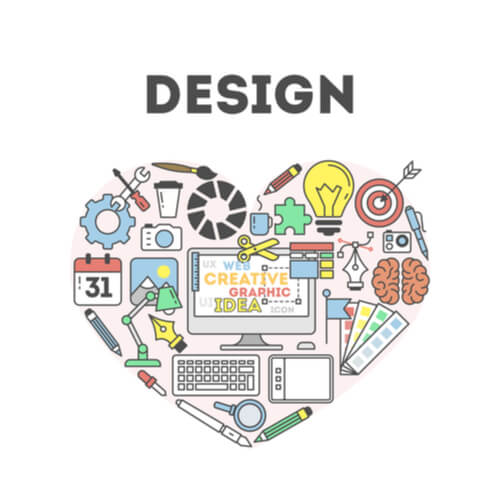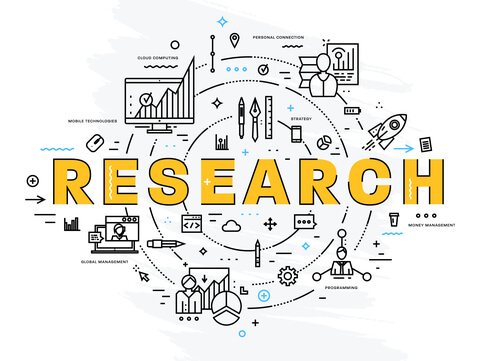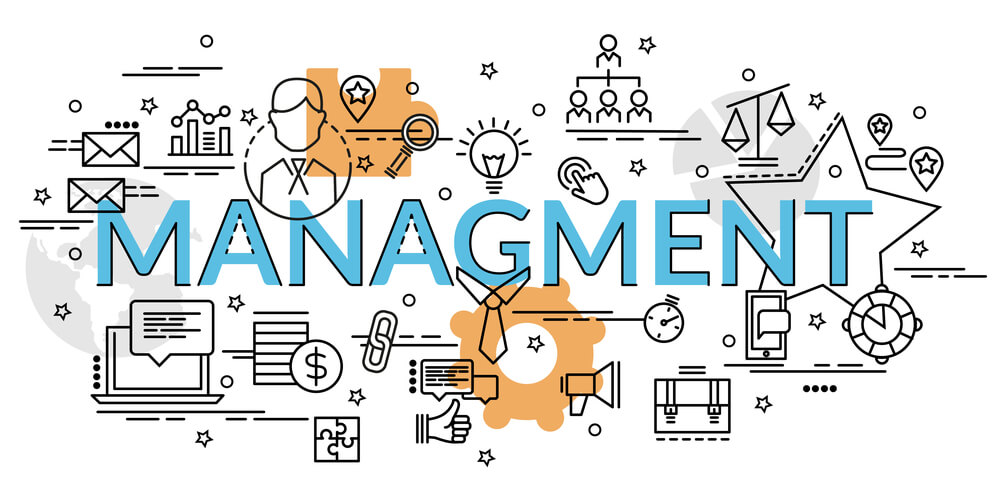An Engineered Process
Independent Tactics Don't Deliver Enterprise B2B Sales Results
Many industrial manufacturers are experiencing similar challenges.
 Lead generation is harder. Trade shows and industry media are important, but less effective. Buyers are hard to reach. More projects end in no decision, and pipelines and forecasts are unpredictable.
Lead generation is harder. Trade shows and industry media are important, but less effective. Buyers are hard to reach. More projects end in no decision, and pipelines and forecasts are unpredictable.
But the recommended tactics don't deliver a top line revenue solution. Blogging, SEO, paid ads, sales training and other "tactics" consume resources but don't solve the problem.
The solution is an integrated revenue growth framework:
- built around a deep understanding of buyers
- built upon the right technology
- built with best practices from rapid growth companies in other industries
In other words it's an engineered system with measurable inputs and outputs that can be adjusted, optimized and replicated.

One Contiguous Buyer Relationship
Manufacturing marketing and industrial sales used to be two very different functions. So it made sense to bifurcate them into the traditional departments.
As buyers have changed, and technology has empowered research and education, the engagement with prospects, buyers and customers has become a single, protracted experience from their perspective.
And a company's ability to deliver is now seen as a reflection of their customer focus.
It's critical, therefore, that marketing and sales alignment is designed into the revenue growth operations, and it's a core principle of our framework.

Your Product is Simply a Means to An End
Every industrial buyer is seeking some change.
They want to mitigate a problem or cost. Or they want to improve in some way to grow faster or produce more.
They might not understand the underlying problem or have stumbled across the best solution.
That's the collective role of your revenue growth function - marketing and sales working together to put the right information in front of the right buyers at the right time and in the right format to help them find the best approach to achieve the change they want.
The golden thread of the buyer must be woven through ever aspect of your revenue growth function to keep their change paramount.

Technology Won't Achieve Any Result.....But It Will Help Your Team Achieve More
The problem with technology investments is that too often they're expected to solve a problem and pay for themselves.
CRM, marketing automation, website personalization, a marketing data stack, customer data platform, conversational marketing, SEO software - it doesn't matter what you're considering....the technology won't drive results.
And yet technology is critical to a complete revenue growth framework because of how it empowers scale, precision, personalization, accountability, measurement and analysis and management of the process.
Technology is integral to industrial revenue growth - but as an enabler, not a solution as is often assumed.

Accountability, Continuous Improvement and Agile Sprints
You engineer your systems so that customers understand which knobs to turn and which levers to pull, to what degree, to achieve manufacturing outcomes.
Why don't we do the same for revenue growth?
Are the leads marketing sends sales quality? Are the prospecting calls sales makes well executed? Which trade show works well to convert existing leads to deals and more than justifies its cost even if there are no new contacts? Which articles or video bring in the most contacts that become buyers?
Virtually everything in manufacturing marketing and industrial sales can be easily measured and analyzed. This means that you can hold departments, managers and team members accountable, and you can consistently tweak and experiment when you're working with an integrated revenue growth framework.
Growth Strategy Building on Best Practices from Rapid Growth Industries
Selling engineered and complex capital equipment and manufactured industrial systems is different than selling a software license.
But probably not as different as you think.
There's a great opportunity to take best practices from industries that scale quickly under pressure from investors and apply those appropriately to manufacturing revenue growth.

Team Structure
The days of rainmaker lone-rangers are over.
Revenue growth is built on integrated teams of business development, sales & success.

Research & Personalization
Can you individualize at scale?
That's the paradox that underlies today's best practices.

Data & Technology
Technology doesn't replace people, but the right systems will amplify efforts.
It's fundamental to success.

Buyer, Buyer, Buyer
Fanatical focus on solving for the buyer - their buying experience and their business problems.
Full stop.

Fully Integrated
Tactics don't work in isolation.
Everything from market research, through personnel to technology, must be aligned.

Change Management
Relatively simple but really hard.
This journey - from a traditional field sales-heavy structure to a customer-focused revenue growth team - is reasonably simple.
That doesn't mean it will be easy.
There will be some of your sales team who moan and urge for a return to what worked - with an increase in print advertising.
Sales leadership will resent reallocation of budget and headcount to marketing functions, and many will resist the insights that come from screenings and training that reflect new skill requirements.
Of course, that hasn't been a reason not to implement an ERP or quality program. Those required cultural change too - and because they seemed more core to your product, you proceeded.
It's time to proceed with this too!
Frequently Asked Questions
How does technology sales apply to capital equipment and industrial sales?
Of course there are differences. You can't simply create a new machine the way they can a new license.
But the sales challenges and environment are similar - complex, large buying teams, competing priorities, competition.
And investors expect consistent, predictable, top line revenue growth.
We can apply similar best practices to your business too.
My team isn't tech savvy.
Then train them.
And if they resist, replace them.
It's that simple. The market expects it.
Do you replace marketing agencies and sales trainers?
Normally not. Companies often benefit from resources to support tactical execution.
However, in some cases we find that vendors are "one-trick ponies" - that they have a checklist to blog once a week, for instance, to drive traffic without any context for whether they're actually supporting the revenue growth effort.
Sales trainers that simple coach teams to regurgitate "About us" decks are similarly irrelevant in today's market.
That's why a framework is so important - it helps to evaluate the resources required and the outcomes that are important. And then, in that context, shift the focus of existing vendors or replace them.
What kinds of manufacturing companies do you work with?
The best answer is I work with B2B companies with complex sales processes. That includes professional services and products.
I have particular expertise in the industrial manufacturing space, particularly with capital equipment.
How does this improve forecasting?
You can't reasonably forecast based on a likelihood of close percentage ascribed to issuing a "quote."
You have to understand, in detail, how companies buy. And then understand in detail how each active prospect will buy.
And:
- why they might not buy
- how your marketing and sales need to support them
- what market, financial, and outcome insights might help
- what competitive pressures you face
- what would cause the project to be approved
- why it would be canceled
- etc.
- etc.
And as you create this detailed understanding, then you'll be much better positioned to forecast each deal at any point in time.
And that's the key to your aggregate forecast - the accuracy of prediction for each project.
What is my industry is different?
Of course, it is a bit different.
But it's also much more similar than you might realize.
The commonalities are based on how buying teams make decisions - about the problems to solve, the solutions to consider and the vendors to select.
In that way, your industry is not unique, and there's huge value in understanding contemporary best practices.
Are you saying tactics don't work?
No. Marketing tactics like SEO, content marketing, paid ads, account-based marketing, data management, blogging, and others can be very effective.
Similarly, training on specific sales techniques can yield great results.
The issue is that those typically don't change top line revenue results.
They may lead to a boost in traffic or leads, for example, but absent a fully engineered framework for qualifying, nurturing, and selling the leads, there's little impact.
That's why a revenue growth framework is so critical in today's complex capital equipment sales environment.
How do we really understand buyers?
It's not easy, but again, it's simple.
Research and conversation.
We need to understand the buying team - which is certainly much larger than you assume.
Then we need to understand the buying journey.
A clear matrix of problems you solve needs to overlay on problems companies have - those they're aware of and those they're not.
And then to largely do the same again...for their buyers.
How long will it take for revenue to reflect the work?
How long is your sales cycle?
How long does it take your customers to allocate capital?
How quickly will your sales team adapt?
How rapidly can you reallocate resources, build an inside sales team, ramp up sales enablement marketing, implement technology, etc.?
We can create the plan for the framework in a quarter or two, and many of the steps can begin in parallel. But we often find that sales teams, for instance, will refuse to use CRM even after an enthusiastic initial response.
Remember, this is a change management project for you and your executive team.




